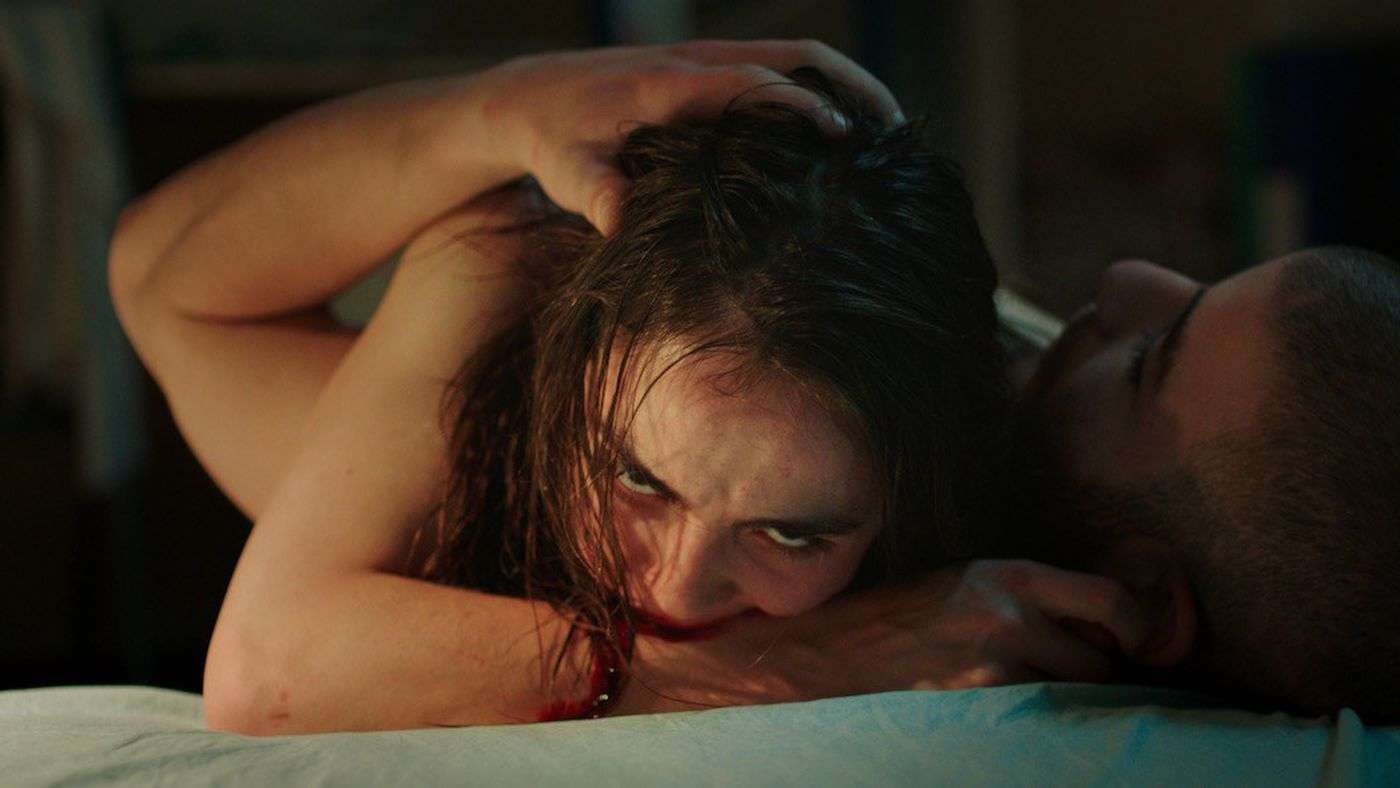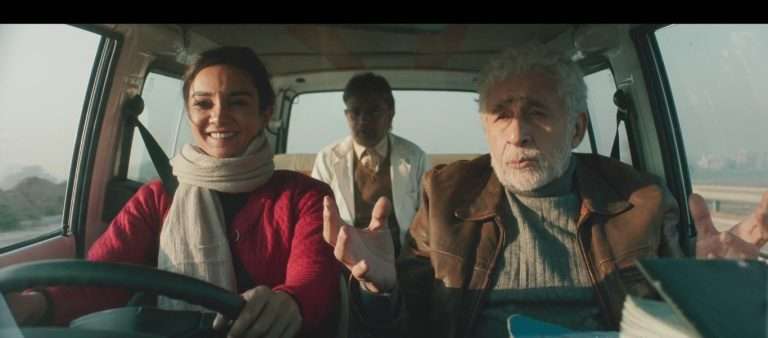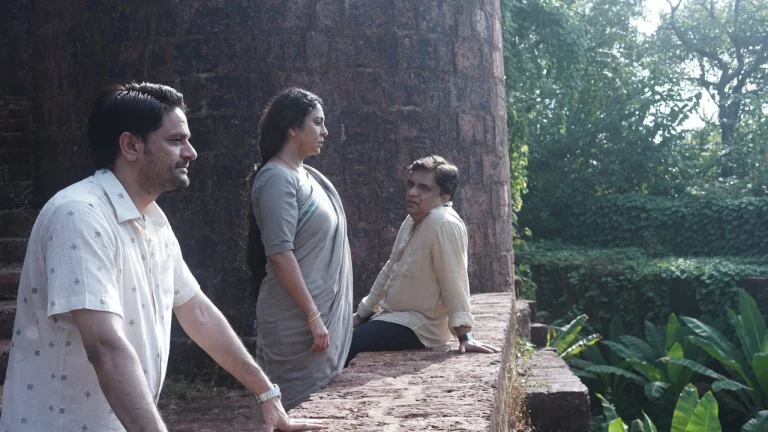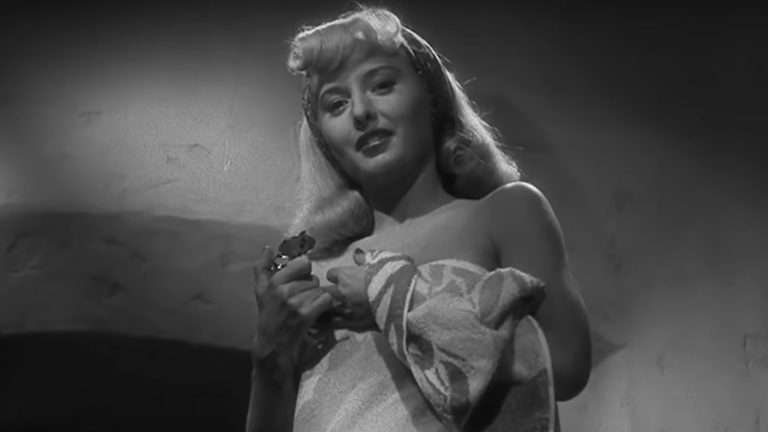The acclaimed filmmaker Paul Verhoeven once said, “Kiss a woman’s breast, and it is an NC-17. Cut off a woman’s breast, and it is an R”. We cheer for John Wick’s headshots and superhero city destruction. Still, sex scenes in movies is the stuff that apparently has to be “justified.” You can depict graphic violence like the Man of Steel snapping Zod’s neck or Joker shooting a TV presenter in the head, and it won’t spark such revulsion as a sex scene.
Now, why is that? Why do people give brutal depictions of violence a free pass yet feel disgusted to witness an intimate scene in a film? This discourse is as old as time. I can’t even tell if this is uniquely an American problem anymore. I don’t have the data or metrics. But it is indeed something worth pondering. Are sex scenes necessary in movies, and if so, why? Let’s dig deeper into the contemplation regarding the necessity or lack thereof of sex scenes in movies and try to find answers.
Do Sex Scenes Contribute to the Plot of a Movie?
The one criticism prevalent in the film community since the last few years regarding the presentation of sex scenes in cinema is that they do not contribute to the movie’s plot and are merely there as filler scenes. To me, this does not even make an iota of sense.
The dominant online film criticism centering so much on “plot” has raised a whole era of viewers who have come to regard the plot as the most vital ingredient in film. When did the plot become the most crucial element to which all other elements had to be serviced? So, a scene is automatically considered flawed if it doesn’t further the plot! I guess “plot” is the easily digestible element to engage in. How much of the blame should go to TikTok and YouTube for deteriorating the film discourse over the years? An entire genre of film reviews became “Summarize the plot with ‘humorous’ commentary while watching.”
Take Steven Spielberg’s Munich, for example: in the film’s second half, there’s a sex scene featuring our lead character and his wife. It is not required for the plot; it might as well be removed from the film, and it would make no difference. Yet, it is there to delve into the psyche of the character. It perfectly encapsulates the trauma our character had gone through until that moment. It is an unromantic romance scene. But, it makes us sympathize with the character and his tragedy. It is a sex scene, but it does not even attempt to elicit any kind of arousal from the audience.
This is not just one example of a sex scene taking us into the psyche of the character instead of serving as fillers. Take the contemplative, oscar-winning Japanese arthouse drama Drive My Car. In this movie, we see a couple bond by crafting stories during sex as a way to cope with the loss of their child. The sex scene in the first 40 minutes of the film takes a large chunk of the runtime, but it does not feel unnecessary for a single second. It slowly builds up to reveal something to the audience. The couple is shown having sex as a casual, mundane activity, which is later revealed to be their way of coping with an unimaginable trauma. It is depressing and agonizing. Some might argue that the sex scene is too long, but every minute of it feels completely earned to make us resonate with the characters.

The creativity of sex scenes is not only limited to showcasing the trauma of the characters. Filmmakers like David Cronenberg and Julia Ducournau have presented sex scenes in their films to explore body horror and make bold artistic statements on sexuality. Unlike the aforementioned examples, sex scenes in Cronenberg and Ducournau’s films are maximalist in nature, yet they work effectively. Both use them to ask tough questions regarding sex and sexuality with their visceral depiction of sex.
These are not just a few examples I have picked randomly to prove my point and gain traction. Sex scenes have always been used creatively by directors to connect with the audience on a deeper level. Hell, even Christopher Nolan, who might be the last director in this world to be associated with a sex scene, made a bold artistic statement in his recently released film Oppenheimer by including a sex scene that is more thought-provoking than titillating, almost hallucinatory, like a punishment for our protagonist. Need I comment more about the necessity of sex scenes in movies?
Now, you may ask why only use something alienating like a sex scene to make the audience resonate with the characters. There could be other ways to elicit emotions from the audience. Well, yes, there are, but I would argue sex is still one of the most intimate forms of human connection possible. People are at their rawest and most vulnerable while having sex. Hence, filmmakers can effectively use it to evoke strong emotions from the audience regardless of its non-necessity for the movie’s main plot. All in all, a sex scene does hold artistic merits and can be used creatively in films to induce varied feelings in the audience for the movie’s characters.
What Causes People to Hate Sex Scenes in Movies?
In my humble opinion, people’s hatred towards sex scenes stems from their simplistic view of the world, especially the younger audience. Expression of emotion for these viewers is strictly limited to trauma/ emotional dependency/ manipulation. Their myopic view of the world limits their perception of everything to just good or bad. Hence, if a thing simply “exists,” then they fail to acknowledge its importance. I may sound a bit judgy here, but I genuinely feel that people should try to have a more nuanced view than labeling a thing as good/bad, especially when they are judging art.
The worst I hear from people about sex scenes in movies is, “If I wanted to see people having sex, I could just watch pornhub instead.” It is a sad commentary on the readily available nature of sexual content in our pockets. I think this speaks to how disposable people see media in general, that “plot” is always more important than “character” to them. This is why everything has become content nowadays, and there is a dearth of true art. I also feel our generation has become hyper-aware and hyper-sensitive to sexuality as this thing that inherently perpetually exists in the context of potential harm or sexual assault. Sex is a bodily concept now; it is an intellectual concept.
I am not saying sex scenes are always art; they can also cater to the audience who watches and satiate their wild desires through them. I mean, look at the 70% of ‘content’ on Netflix. But simply calling sex scenes unnecessary in all movies just does not sit right with me.
Tasteless Sex Scenes in Movies
Although I have defended the inclusion of sex scenes in movies in this article, I feel it is only fair to report how some movies use sex scenes in a tasteless manner that is contradictory to all the aforementioned creatively used sex scenes. I recently watched a movie called Queen and Slim with Jodie Turner-Smith and Daniel Kaluyaa.
This film has the worst sex scene I have seen in years. Totally uncreative. It’s so irrational and insulting on all levels that I cannot believe producers okayed such a thing. Again, the sex scene is not unnecessary in the context of the film, but the lack of creativity in it is evident. It cuts to some police riots that easily prompt eye-rolls from the viewers. On top of all this, it fails to elicit any arousal from the audience as well.
While I may sound contradicting my own point here, I am establishing this counter-argument to prove how I only condone those sex scenes in films that are used creatively to add character to the narrative. Again, these are for all the facets of the film; if they are tasteless, then they will be a hard pill to swallow. However, just hating the presence of sex scenes in movies is absurd and illogical. You can criticize them for being uncreative or tasteless. Simply normalizing them as one facet of the narrative is not too difficult, is it?
Final Word
Once again, I would never tell anyone how to engage with art, but wanting sex scenes removed from movies is so weird. It comes from a sad, impersonal viewpoint of considering films as information conveyor belts; instead of moving paintings, we get to “ooo” and “aaa” and glean our own understandings.
People watch a sex scene and instantly go, “Ermm, this doesn’t fit into a Wookiepedia plot summary. ” They want their criticism to have dictatorial power instead of letting art be art, which is quite sad. Time and again, movies have proved that sex scenes can be used creatively to make unique artistic statements, whether they are modern classics like Eyes Wide Shut or critically acclaimed recent works like The Handmaiden. If people can gleefully watch brutal violence in Quentin Tarantino’s films, then they should not have any issues observing allegedly twisted sexual behaviors in Park Chan Wook’s or Michael Haneke’s movies.







